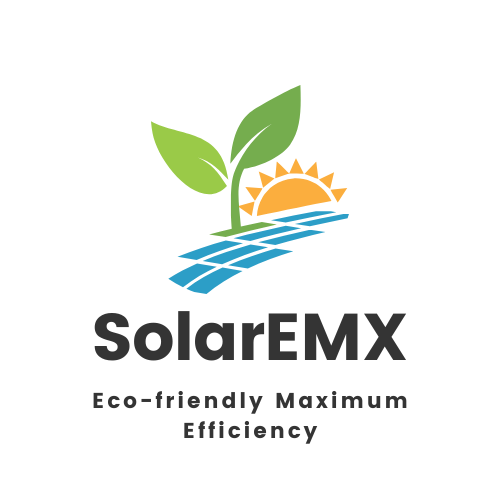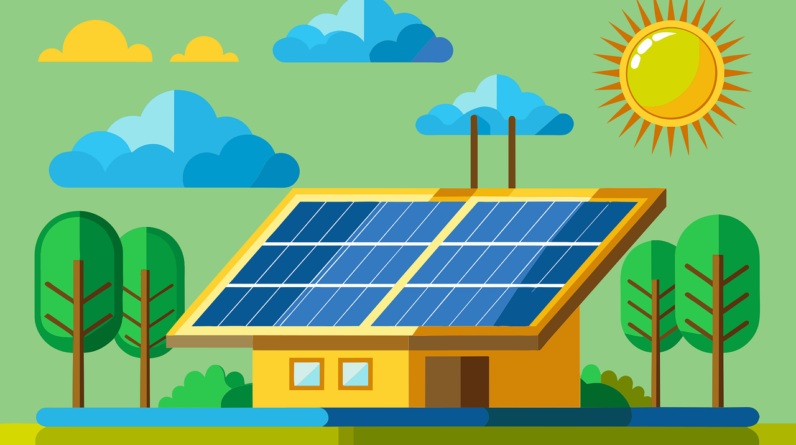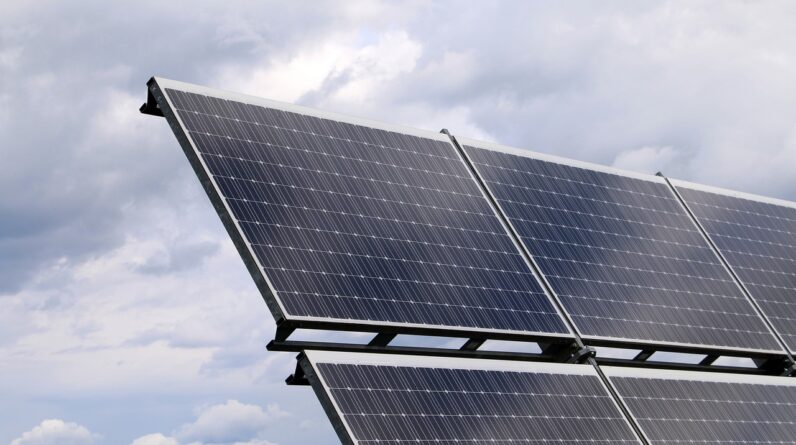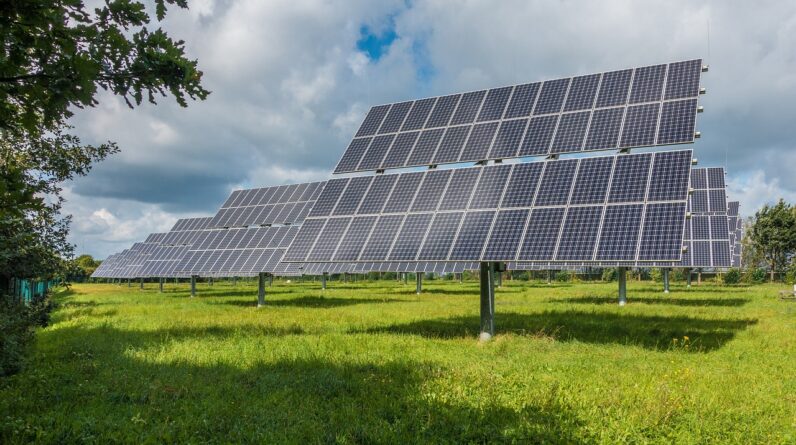
Discover optimal solar energy solutions for large-scale commercial projects, enhancing sustainability, reducing costs, and boosting your brand’s reputation.
Have you ever considered how solar energy could transform a large-scale commercial project? With sustainability becoming a crucial component of business strategies, solar energy is more than just a trend; it’s a viable solution that can lead to substantial savings, improved brand reputation, and a positive environmental impact. Let’s take a closer look at the best solar energy solutions tailored for large-scale commercial projects.
Understanding Solar Energy for Commercial Projects
Solar energy harnesses sunlight and converts it into electricity or heat. For large-scale commercial projects, this involves installing solar panels on rooftops, building-integrated photovoltaics, or solar farms. Understanding the different types of solar energy solutions is vital, as each option has its unique benefits and feasibility depending on your commercial project’s size and location.
Types of Solar Energy Systems
When it comes to large-scale installations, there are generally three types of solar energy systems to consider:
-
Grid-Tied Systems
These systems are connected to a utility grid, allowing you to use solar energy while still having access to grid power. They are cost-effective and popular due to their ability to offset energy costs significantly. -
Off-Grid Systems
Off-grid systems provide energy independently of the utility grid, making them ideal for remote areas or businesses seeking total energy autonomy. However, they require battery storage, which can increase initial costs. -
Hybrid Systems
Hybrid solutions combine both grid-tied and off-grid systems, offering the flexibility to switch between energy sources. They provide the benefit of utility savings while still having a backup power source for emergencies.
Benefits of Solar Energy for Large-scale Commercial Projects
When considering solar energy for your commercial project, the advantages are vast. Not only can you significantly reduce operational costs, but you also contribute to a more sustainable future.
Cost Savings
One of the most immediate benefits of installing solar energy solutions is the potential for substantial cost savings on energy bills. Depending on your location and solar setup, you could reduce your electricity expenses by up to 75%. Additionally, many regions offer tax incentives and rebates for solar installations, further lowering your costs.
Environmental Impact
Solar energy is a clean, renewable resource, meaning it helps reduce greenhouse gas emissions. Choosing solar energy aligns your business with sustainability goals and can improve your company’s public image. Customers are increasingly considering sustainability in their purchasing decisions, so making a switch to solar could attract more customers.
Energy Independence
By investing in solar energy, you can achieve greater energy independence. With utility prices unpredictable and often rising, creating your energy source can protect your business against fluctuations in electricity costs. This is particularly advantageous for businesses where energy consumption is high.

Key Considerations for Large-Scale Solar Energy Projects
Before investing in solar energy solutions, several factors need your attention to ensure you’re making an informed decision.
Assessing Your Energy Needs
Understanding your current and future energy needs is a critical first step. Conduct an energy audit to evaluate usage patterns and peak consumption periods. This assessment will help you determine the size and type of solar system required for optimal performance.
Location and Sunlight Access
The location of your commercial building plays a significant role in the effectiveness of solar installations. A site analysis should include factors such as the orientation of buildings, surrounding trees or structures that may cast shadows, and local climate conditions that affect sunlight availability.
Financing Options
Financing a large-scale solar project can seem daunting, but several options exist, including direct purchase, solar loans, power purchase agreements (PPAs), and leases. Each comes with its advantages and disadvantages depending on your financial strategy, so it’s worth researching and consulting with a financial advisor or solar expert.
Local Regulations and Incentives
Understanding local regulations and incentives for solar energy installations is vital. Many states offer tax credits, rebates, and grants for businesses that invest in renewable energy. These incentives can significantly reduce upfront costs and improve your return on investment (ROI).
Best Solar Energy Solutions for Large Scale Commercial Projects
Now that you’ve considered the benefits and key factors, let’s delve into specific solar energy solutions best suited for large-scale projects.
Rooftop Solar Panels
Rooftop solar panels are one of the most common solutions for commercial buildings. These panels harness sunlight directly on the roof and can often complement existing structures. They are especially beneficial for businesses with large spaces and minimal shading.
Advantages of Rooftop Solar Panels:
- Space Efficiency: Utilize vast rooftop areas without requiring additional land.
- Cost-Effective: Typically requires a lower initial investment than other systems, especially with available incentives.
Solar Farms
If your company has the land available, a solar farm can be an excellent option. This large-scale installation may consist of rows of solar panels spread across a designated area, converting sunlight into significant amounts of energy.
Advantages of Solar Farms:
- Scalability: Expand solar capacity as needed without limitations imposed by existing infrastructure.
- Community Impact: Contribute positively to local renewable energy efforts, potentially enhancing public relations.
Building-Integrated Photovoltaics (BIPV)
BIPV combines solar technology with building materials, such as solar windows or solar shingles. This innovative approach seamlessly integrates solar energy solutions into the architecture, providing both aesthetic appeal and functionality.
Advantages of BIPV:
- Space Savings: Reduces the need for separate panel installations by incorporating solar solutions into building design.
- Enhanced Aesthetics: Appear as traditional building materials, attracting clients who prioritize design and functionality.

Maintaining Your Solar Energy Systems
Once you’ve invested in a solar energy solution, it’s essential to maintain systems effectively to ensure optimal performance.
Regular Monitoring
Monitoring the energy output of your solar system is vital. Many modern systems offer online dashboards that allow you to track performance metrics and identify any issues promptly. Regular monitoring can help you maximize energy savings and equipment life.
Cleaning and Maintenance
Dust, debris, and environmental factors can affect the efficiency of solar panels. Regular cleaning, especially in dusty environments, will keep your panels operating at peak performance.
Professional Inspections
Periodically scheduling professional inspections and maintenance can help you identify potential problems before they become significant issues. Regular maintenance ensures that your solar systems are functioning efficiently and safely.
The Future of Solar Energy in Commercial Projects
As technology evolves, solar energy solutions will continue to become more efficient and cost-effective. Investing in solar now positions your enterprise as a leader in sustainability, setting an example for others in the industry.
Technological Innovations
Emerging technologies, such as solar batteries and advancements in photovoltaic cells, will further enhance the viability of solar energy for large-scale commercial projects. Storage solutions allow for greater utilization of generated energy, even after the sun goes down.
Increasing Demand for Sustainability
With rising consumer awareness regarding environmental issues, businesses prioritizing renewable energy solutions are likely to gain greater market share. Adopting solar energy will not only help meet your energy needs but also resonate well with increasingly eco-conscious consumers.

Conclusion
Investing in solar energy solutions for large-scale commercial projects is an intelligent move that provides numerous benefits ranging from cost savings to environmental impact. By understanding the types of solar systems available, considering your unique business needs, and planning for future growth, you can position your business as a pioneer in sustainable energy practices.
Harnessing solar energy not only fuels your business’s growth but also contributes positively to the community and environment. Seeing the future through a greener lens not only enhances your operational strategies but also solidifies your commitment to corporate responsibility. In today’s economic landscape, sustainability isn’t just an option; it’s a necessity for any forward-thinking business.






